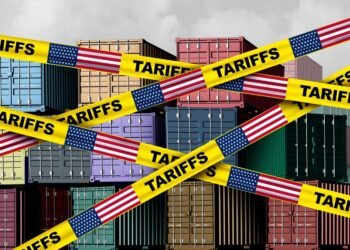Fitch Ratings has upgraded Cote D’Ivoire’s long-term Issuer Default Rating (IDR) to ‘BB-’ from ‘B+’ with a stable outlook.
According to Fitch Ratings, this rating action reflects the sustained reduction of political risk since Cote d’Ivoire’s peaceful parliamentary election in March 2021. This also reflects the expectation that with continued adherence to fiscal prudence and reforms, authorities will be able to reverse the temporary deterioration of the budget balance and stabilize government debt.
Furthermore, the rating action also includes factors that indicate the Ivorian economy will begin a robust growth path as the impact of the pandemic wanes, low development indicators and comparatively high commodity dependence.
Accordingly, Fitch projects that the general government deficit will gradually narrow to 3 percent of GDP by 2024, in line with the government’s record of fiscal prudence and West African Economic and Monetary Union (WAEMU) convergence criteria.
Moreover, the fiscal deficit which was high reaching 5.6 percent of GDP in 2020 will remain high at 5.4 percent in 2021, compared with an average 2.9 percent over 2017 to 2019, Fitch predicts. This reflects a mix of delays in disbursing part of the government’s funding committed through temporary support funds in 2020 and additional commitments.
On the government’s part, it estimates that the difficulties in the electricity sector that disrupted electricity supply for several months will impact the budget at 0.4 percent of GDP in 2021.
Additionally, Fitch notes that the government is implementing a more durable increase in security spending in order to face growing security threats at the border with Burkina Faso and Mali. Furthermore, this will continue to weigh on fiscal outturns, with the deficit expected at 4.3 percent of GDP in 2022 and 3.5 percent in 2023.
Fiscal Consolidation plans
Concerning the government’s fiscal consolidation plans, they are focused on tax policy and administrative reform measures for the purpose of broadening the tax base from just 12.3 percent of GDP in 2020, alongside continued current spending restraint.
As a consequence, the government has plans to gradually withdraw tax exemptions, improve coverage of the informal sector and raise excise taxes including on the cocoa sector.
Notwithstanding the above, Fitch notes that the Ivorian government revenue targets have proved ambitious in the past, due to capacity challenges and adverse commodity price moves, and some reforms are unpopular.
Noting these, therefore, Fitch expects the authorities to adjust capital spending to revenue collection to achieve their deficit targets as they have done in the past.
Fitch Ratings also expects the combination of gradual fiscal consolidation and renewed strong GDP growth to lead to a peak in general government debt at about 50 percent of GDP from 2023.
“The government continues to participate in the G20’s Debt Service Suspension Initiative (DSSI) in 2021 and expects savings of around 0.6 percent of GDP. Participation does not reflect any liquidity challenges, in our view, and the government remains firmly committed to exclude any private creditor participation from any debt relief initiative.”
From the above, Fitch forecasts Cote d’Ivoire’s GDP growth to average 6.2 percent in 2021-2022, driven by uptick in domestic demand. Over the longer term, however, growth will remain robust but the momentum will rely on increased productivity and increased diversification, Fitch notes.
READ ALSO: About 57% of registered taxpayers do not file returns – GRA






















